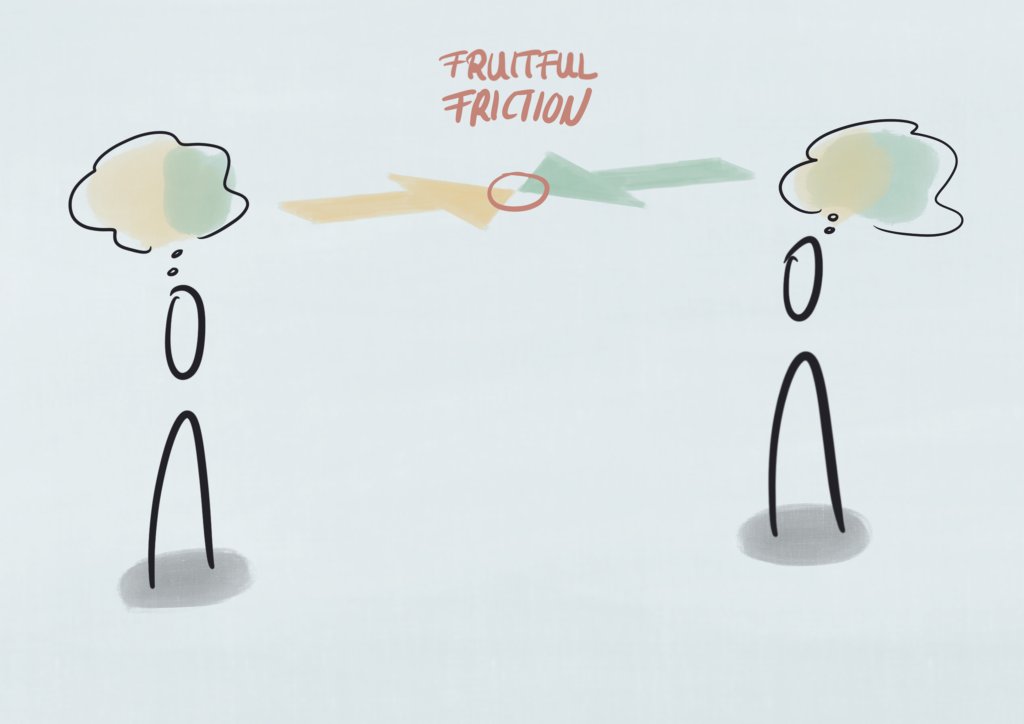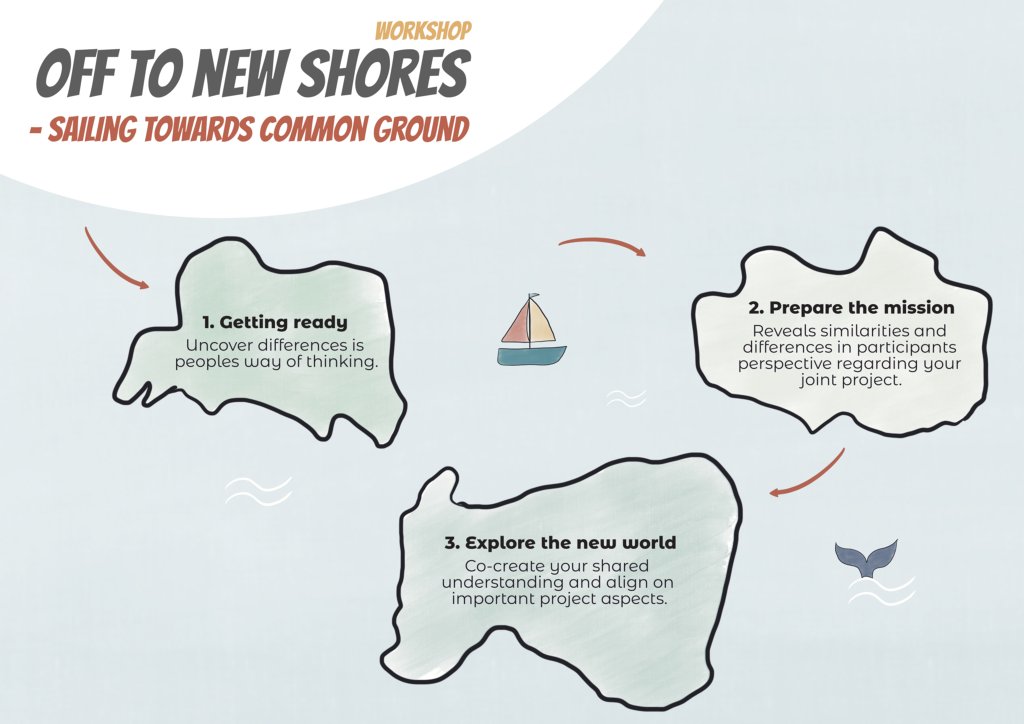As an embedded designer in the social innovation context, the designer’s role in this project was fluid, not static. During the course of the project, the role of the designer changed from being a researcher identifying pain points and opportunities to creating a solution (as the designer). At the end of the project, the role changed again, the designer becoming the facilitator, coach and mediator for the developed process. The framework and toolkit itself present one way on how designers can bring transformation by triggering a shift in people’s mindsets and using friction as a catalyst for change. In this case, the designer has co-ownership over the process, but the ownership of the social innovation project stays with the innovators.
Social innovations can help tackle today’s complex global challenges on a local scale; especially in cases where their impact can generate a societal transformation. By taking small initiatives, designers apply new practices to address complex societal problems while meeting social needs.
The diverse backgrounds, expertise, and expectations of actors involved in social innovation projects often mean that people have their own goals, language, and way of thinking. These aspects are often poorly aligned, which can lead to misconceptions.
The act of challenging the mindset is what leads to change. Identifying ways of how to enable this act is the main focus of this project. Fruitful friction was found to be a catalyst for change.
“Are we on the same page?“ is a framework and toolkit that enables social innovators and their stakeholders to reach common ground by applying the concept of Fruitful Friction. This is the process of causing deliberate friction to engage people in a fruitful sense-making activity that makes people realize that others have a different perspective. This in turn allows the person to reflect on their own point of view. Increased awareness is one step to enable a transition in people’s mindsets, values, and beliefs.
The toolkit’s centrepiece is an online workshop in which social innovators and their stakeholders apply fruitful friction to reach common ground in a co-creative way.
Collaboration with the Participatory City Making (PCM) Lab and DESIGNSCAPES enabled social innovators across Europe to engage in qualitative research activities and co-creative sessions, These gave the team first-hand practitioners’ perspectives and insights that enriched the process and outcome.
The workshop enables social innovators to understand their stakeholders’ implicit perspectives (how people think and value) and creates a space for fruitful discussions of the different points of view.
Similarities and differences of individual perspectives are made explicit and a shared understanding regarding the project goal and vision is created.
The project presents a starting point for impacting cultural roots and relationships, changing values and mindsets. It’s not about forcing perspectives onto others; it’s about creating an environment of open exchange and respect to embrace the diversity of viewpoints.
This project presents a process where designers facilitate change based on design methods like co-creation and metaphors to enable social innovators and their stakeholders to find common ground.


